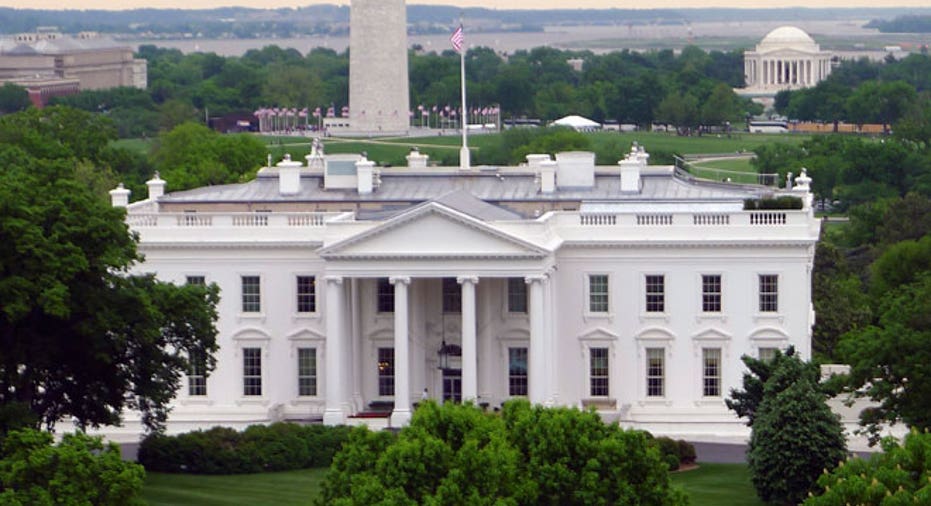Don’t Bank on Oil, Unemployment Sinking Obama's Reelection

Conventional wisdom holds that two economic metrics should be setting off alarm bells in the halls of the West Wing: 8% unemployment and $3.75 a gallon gasoline. Those figures would seem to paint a troubling picture for President Obama’s reelection hopes.
Yet a look back at the history books paints a far different picture.
According to an analysis by ConvergEx, there’s actually little correlation between a rise in the unemployment rate or soaring gasoline prices and the reelection of incumbent presidents, who are notoriously difficult to oust.
For example, former President George W. Bush skated by for another four years in 2004 despite a 69.1% surge in gas prices and a 132% spike in crude oil prices during his first term. Likewise, former President Richard Nixon won a landslide reelection in 1972 in the face of a 56% rise in unemployment.
“I was deeply surprised. I really thought the data would show that economic variables play a much larger role in elections,” said Nicholas Colas, chief market strategist at ConvergEx.
This may help explain why intrade, which is an online exchange where investors buy shares to predict political outcomes, currently forecasts a 59.4% of Obama winning reelection.
To be sure, history is just that, history. Just because past elections turned out the way they did in given economic scenarios doesn’t mean future ones will as well.
But given the prominent role of the economy during this election and the efforts by investors to get a feeling for which way the contest will turn out, it’s worth looking at these historical models.
Oil Spikes Fail to Sink Reelection Hopes
With talk of a potential military strike on Iran and crude oil hovering near $110 a barrel, the energy markets are being closely watched by investors and political prognosticators alike.
Since December 2008, crude oil has skyrocketed a ridiculous 183.2% from just over $30 a barrel as demand increased dramatically after the Great Recession ended and due to tensions in the Middle East.
Similarly, gasoline prices have leapt nearly 90% to an average of $3.738 a gallon on Thursday. In fact, gas prices are higher for this time of the year as they ever have been, according to AAA.
While these numbers may make the White House squeamish and could ultimately hurt the economic recovery, there isn’t much of a relationship between energy prices and reelection chances, ConvergEx said.
For example, former President Bill Clinton won reelection in 1996 even though crude prices surged more than 66% from their trough during his first term, ConvergEx said. Gasoline prices raced almost 70% higher from their December 2001 lows, but Bush beat John Kerry in 2004.
Then again, the Carter Administration was rocked by the oil crisis in the late 1970s, watching gasoline prices soar uncomfortably high. Ultimately, surge in energy prices helped lead to Carter’s defeat.
Jobs in the Spotlight
Counterintuitively, the unemployment rate, which has climbed 15% under Obama, appears to be another poor indicator of the likelihood of an incumbent returning for four more years.
In fact, three presidents – Eisenhower, Nixon and Bush – were reelected despite an increase in the unemployment rate, ConvergEx said. Under Eisenhower, the unemployment rate raced 59% higher during his first four years in office, while the rate was up a more modest 26% under Bush.
Under Obama, the rate has climbed from 7.2% in January 2009 to 8.3% now, a 15% rise.
“Judging by historical precedent, such a moderate increase does not automatically oust him from office in the next election,” ConvergEx said.
Colas warned, however, that it may be tough to use this as a barometer given the extreme unemployment levels seen in the wake of this downturn. After all, unemployment spiked as high as 10.2% in October 2009.
Stocks on the Rise
Of course, there are more reliable economic indicators that help to handicap the 2012 race for the White House.
A study conducted by the Socioeconomics Institute in Gainesville, GA, shows a very significant positive relationship between incumbent reelection and net percentage change in the Dow Jones Industrial Average. The study found that an incumbent president has at least an 82% chance of being reelected when the stock market has rallied 20% or more in the three years before the election.
Likewise, a positive market performance in the three months before the elections indicates an incumbent victory and vice versa, according to the Stock Trader’s Almanac.
It’s too early to tell how the markets will perform this fall, but the blue chips have rocketed as much as 98.6%, or more than 6,000 points, since tumbling to 12-year lows in March 2009.
All of these metrics give an important backdrop to this White House race, but the only numbers that will matter in November are the vote totals.
“Looking at just the track record of history, the bottom line is incumbents are really hard to beat,” said Colas. “Obviously, history can repeat or not repeat. Nothing is preordained.”



















